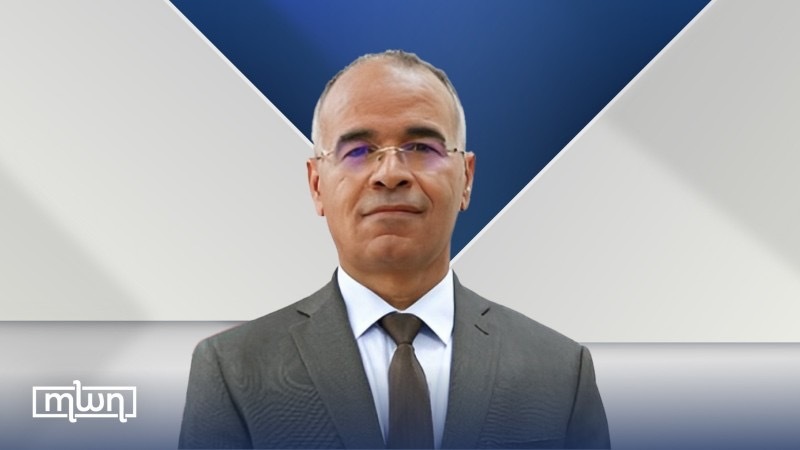Marrakech - In a surprising move, Tunisian President Kais Saied dismissed Prime Minister Ahmed Hachani on Wednesday evening and appointed Kamel Madouri, the current Minister of Social Affairs, as the new head of government.
The announcement came in a brief statement from the presidency, providing no further details on the decision.
Hachani had served as Prime Minister since August 1, 2023; President Saied appointed him to the post after dismissing Najla Bouden without official justification.
The latest change in leadership comes amidst Tunisia’s ongoing electoral process, with a presidential election scheduled for October 6, in which Saied is running for a second five-year term.
Kamel Madouri, born on January 25, 1974, in Teboursouk, brings a wealth of experience to his new role.
He holds a Ph.D. in European Community Law and Maghreb-European Relations and a Master’s degree in Legal Sciences from the Faculty of Legal, Political and Social Sciences of Tunis 2.
Madouri is also a graduate of the National School of Administration (ENA) and the National Defense Institute.
Prior to his appointment as Minister of Social Affairs in May 2024, Madouri served as the CEO of the National Health Insurance Fund (CNAM) and the National Pension and Social Security Fund (CNRPS).
He has been a member of the National Council for Social Dialogue and vice-president of the social protection sub-committee.
Madouri has also served on the boards of several national institutions, including the public health establishment (Charles Nicolle) and the General Insurance Authority.
In addition to his administrative roles, Madouri has taught at the National School of Administration and the Higher School of Internal Security Forces.
He has authored several publications on social security coordination within the association agreement, social protection for migrant workers, portability of social rights, and health insurance and pension reform.
As an expert in community law, institutional law, international relations, and common policies of the European Union, Madouri has been a permanent member of various joint Tunisian-foreign social security commissions.
According to Tunisian media, President Saied’s decision to appoint Madouri comes as Tunisia seeks to strengthen its institutions and improve governance.
Reports have especially noted that Madouri’s extensive experience in public administration, international law, and multilateral negotiations is expected to be valuable in addressing the economic and social challenges facing the country.
However, the dismissal of Prime Minister Hachani and the appointment of Kamel Madouri comes at a critical time for Tunisia, as the nation prepares for the upcoming presidential election in October.
The move has raised questions about the stability of the government and the direction of the country under President Saied’s leadership.
The announcement came in a brief statement from the presidency, providing no further details on the decision.
Hachani had served as Prime Minister since August 1, 2023; President Saied appointed him to the post after dismissing Najla Bouden without official justification.
The latest change in leadership comes amidst Tunisia’s ongoing electoral process, with a presidential election scheduled for October 6, in which Saied is running for a second five-year term.
Kamel Madouri, born on January 25, 1974, in Teboursouk, brings a wealth of experience to his new role.
He holds a Ph.D. in European Community Law and Maghreb-European Relations and a Master’s degree in Legal Sciences from the Faculty of Legal, Political and Social Sciences of Tunis 2.
Madouri is also a graduate of the National School of Administration (ENA) and the National Defense Institute.
Prior to his appointment as Minister of Social Affairs in May 2024, Madouri served as the CEO of the National Health Insurance Fund (CNAM) and the National Pension and Social Security Fund (CNRPS).
He has been a member of the National Council for Social Dialogue and vice-president of the social protection sub-committee.
Madouri has also served on the boards of several national institutions, including the public health establishment (Charles Nicolle) and the General Insurance Authority.
In addition to his administrative roles, Madouri has taught at the National School of Administration and the Higher School of Internal Security Forces.
He has authored several publications on social security coordination within the association agreement, social protection for migrant workers, portability of social rights, and health insurance and pension reform.
As an expert in community law, institutional law, international relations, and common policies of the European Union, Madouri has been a permanent member of various joint Tunisian-foreign social security commissions.
According to Tunisian media, President Saied’s decision to appoint Madouri comes as Tunisia seeks to strengthen its institutions and improve governance.
Reports have especially noted that Madouri’s extensive experience in public administration, international law, and multilateral negotiations is expected to be valuable in addressing the economic and social challenges facing the country.
However, the dismissal of Prime Minister Hachani and the appointment of Kamel Madouri comes at a critical time for Tunisia, as the nation prepares for the upcoming presidential election in October.
The move has raised questions about the stability of the government and the direction of the country under President Saied’s leadership.

